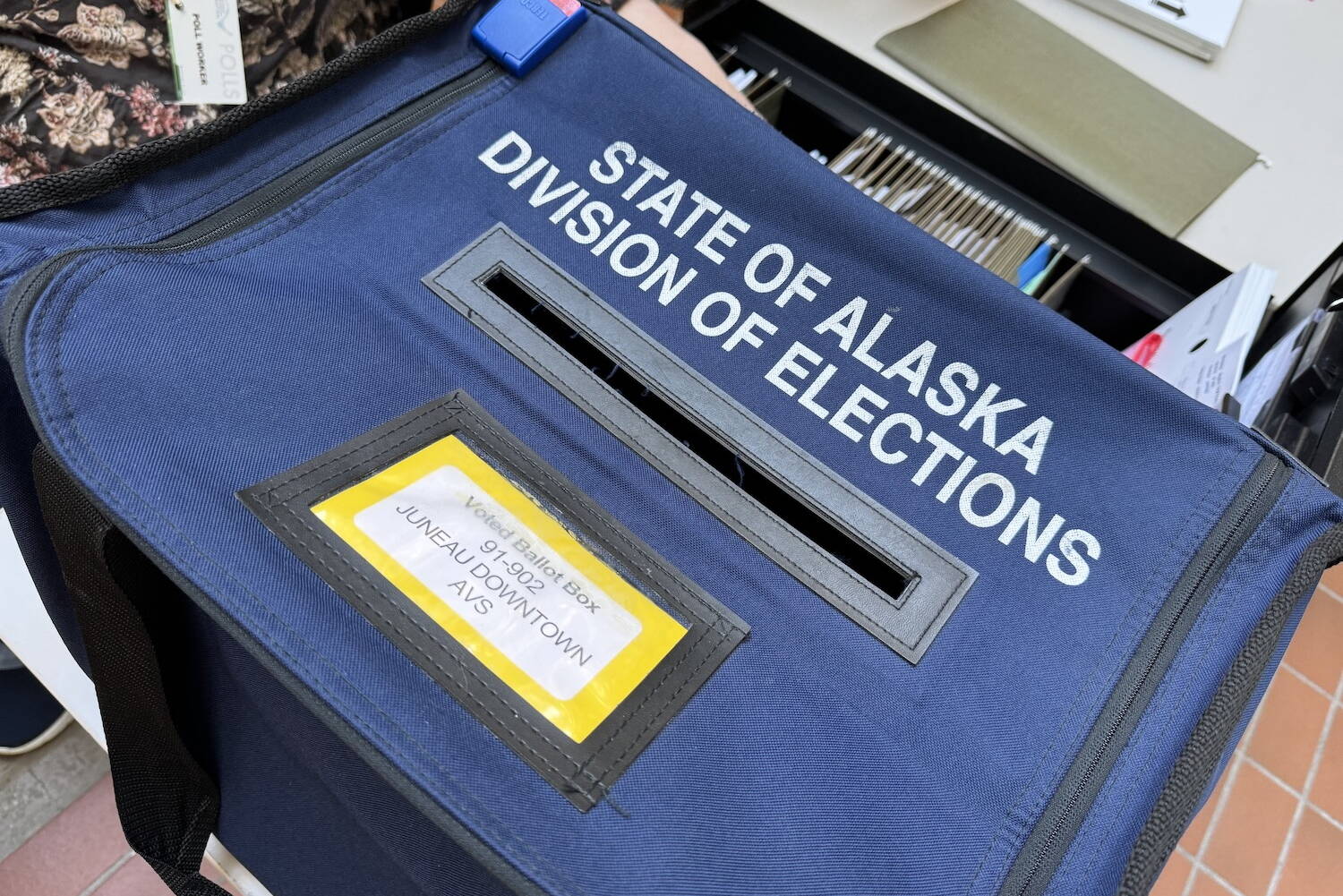An Anchorage Superior Court judge said on Tuesday that out-of-state imprisoned Democratic U.S. House candidate Eric Hafner is eligible to appear on November‘s election ballot.
In an 18-page ruling, Judge Ian Wheeles firmly dismissed a lawsuit filed by the Alaska Democratic Party, which sought to remove Hafner from the ballot.
The ruling hinged on the idea that Hafner, while unqualified to take office, is qualified to run for office.
Wheeles’ decision clears the way for the Alaska Division of Elections to print and mail ballots to international voters. The federally mandated deadline to do so is Sept. 21, and elections officials had testified that removing Hafner could cause them to miss the deadline.
The party’s executive director, Lindsay Kavanaugh, said the party will appeal the decision to the Alaska Supreme Court.
In court on Monday, attorneys representing the party had suggested voters might erroneously pick Hafner instead of the party’s preferred candidate, incumbent Rep. Mary Peltola, D-Alaska.
Polling indicates Peltola may be in a close race against Republican challenger Nick Begich. While Hafner earned less than 1% of the vote in the state’s August primary election, some Democrats are worried that Hafner could act as a spoiler.
Wheeles, noting Alaska’s ranked choice general election system, rejected the party’s argument.
“The court does not find any reasonable argument from plaintiffs that Hafner’s appearance on the ballot is going to harm another candidate or voters,” he wrote.
Removing Hafner from the ballot, Wheeles wrote, raises the risk that the ballot redesign process would cause the Division of Elections to miss deadlines and cause confusion among voters.
“In sum, an injunction threatens a successful administration of the election process, harming the Defendants without adequate protection, while the Plaintiffs face only minimal harm,” he wrote.
Most concerning to the court is the harm to the public and the integrity of the election, which would be truly irreparable.”
Under Alaska’s elections system, the top four candidates from the primary election — regardless of party — advance to the general election.
Wheeles appeared to scold the Democratic Party for bringing the case so late in the elections process, writing that it was “very foreseeable” that two candidates from either party might make the state’s final four.
“If plaintiffs did not evaluate this possible outcome in May, June, or even July, that was a failure to plan by the plaintiffs, not the emergency that is being depicted here,” he wrote.
Wheeles furthermore concluded that Hafner is a legal candidate, even if he would be unable to take office.
The Alaska Democratic Party had noted in court that Hafner, who was convicted of threatening public officials, is not scheduled to be released from federal prison until 2036.
The U.S. Constitution requires that a candidate for office be an inhabitant of the relevant state when elected, and Hafner is imprisoned in New York.
“If ever there is a person who cannot possibly become an inhabitant of the state in which they seek elections by election day, that person is Mr. Hafner,” said attorney David Fox, representing the Democratic Party.
Wheeles rejected that argument, writing, “There is no dispute that Hafner is not residing in Alaska today. But there is no requirement under law that he reside in Alaska today, in the past, or in the future at any time prior to the day ‘when elected’ to office. That day has not yet arrived, and regardless of the probability that plaintiffs assert, the court cannot make any factual finding about the future. The court would be speculating, which it has no authority to do in this context.”
Attorneys for the Alaska Department of Law, which represented the Division of Elections, did not immediately respond to a request for comment late Tuesday. An attorney representing the Alaska Republican Party, which intervened on the side of the division, also did not immediately respond to an emailed request for comment.
“We’re disappointed by the judge’s ruling but remain confident Peltola will win in (November),” Kavanaugh said.
She noted that Hafner is on the ballot only because two higher-finishing Republican candidates — Lt. Gov. Nancy Dahlstrom and insurance adjuster Matt Salisbury — withdrew after the primary.
“Unlike the Republican Party, we don’t have to scheme to win by asking candidates to drop out until a convicted felon gets on the general election ballot who received less than half a percentage of the votes cast during the primary,” Kavanaugh said. “We have more respect than that for voters in Alaska and clearly, our candidates are more viable than theirs.”
Bernadette Wilson, a senior adviser for Begich’s campaign, said by email that the Democratic Party’s situation “is a direct result of ranked choice voting which Nick Begich has consistently spoken out against. Fortunately, Alaskans will have the opportunity to undo this convoluted system in November.”
A ballot measure seeking to repeal the state’s open primary and top-four, ranked choice general election system will be in front of voters on the general election ballot.
“In the meantime,” Wilson said, “we look forward to having a robust discussion on the failed policies of the Biden administration which Mary Peltola has unequivocally supported as congresswoman.”
• James Brooks is a longtime Alaska reporter, having previously worked at the Anchorage Daily News, Juneau Empire, Kodiak Mirror and Fairbanks Daily News-Miner. This article originally appeared online at alaskabeacon.com. Alaska Beacon, an affiliate of States Newsroom, is an independent, nonpartisan news organization focused on connecting Alaskans to their state government.

